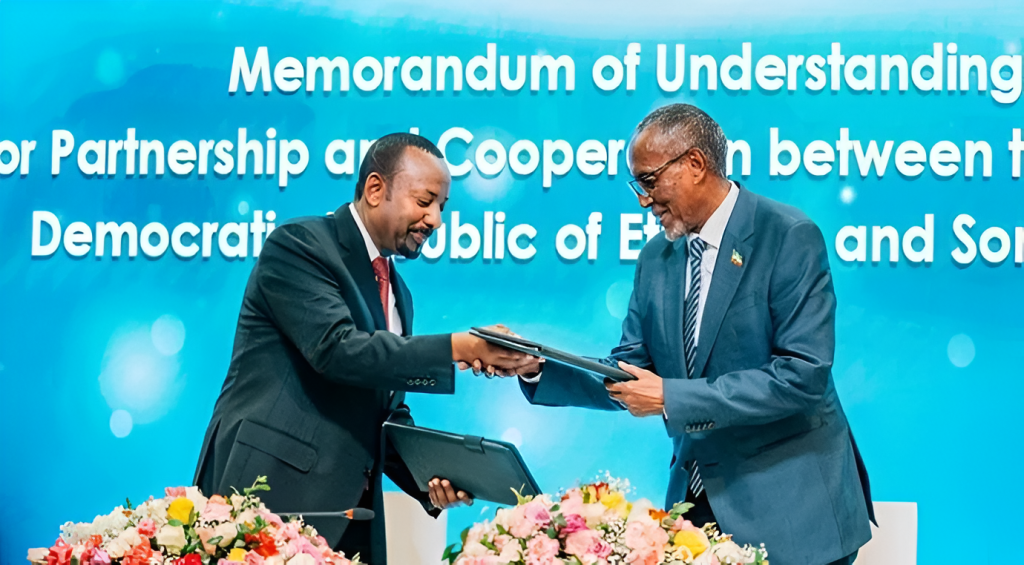Landlocked Ethiopia made significant strides on Monday towards securing sea access, formalising an agreement in the capital of Addis Ababa with the breakaway Somali region of Somaliland. The memorandum of understanding, inked by Ethiopian Prime Minister Abiy Ahmed Ali and Somaliland President Muse Bihi Abdi, outlines key aspects of the collaboration.
As per the agreement, Somaliland intends to lease a 20-km (12.4-mile) stretch of its coastline to Ethiopia for the establishment of a marine force base. President Abdi highlighted this aspect during the signing ceremony. With a population exceeding 120 million, Ethiopia stands as the most populous landlocked country globally.
The accord not only cements the security framework but also enhances economic and political ties between Ethiopia and Somaliland, as stated in a release from the Ethiopian Prime Minister’s office. President Abdi further revealed that the agreement includes a commitment from Ethiopia to recognise Somaliland as an independent nation in the near future.
Having declared independence from Somalia over three decades ago, Somaliland remains unrecognised by the African Union and the United Nations as an independent state. Somalia maintains its claim over Somaliland, and swift reactions from Somali officials reflect this stance.

“Sovereignty and territorial integrity are non-negotiable for Somalia,” emphasised Abdirizak Omar Mohamed, Somalia’s petroleum and mineral resources minister. In response to Ethiopia’s move, Somali state-owned media announced a Cabinet meeting on Tuesday to deliberate on the Somaliland-Ethiopia agreement.
Somalia and Somaliland had recently reached a separate agreement in Djibouti, focusing on collaboration in security and combating organized crime. Ethiopia, having lost its sea access in 1993 when Eritrea seceded, has heavily relied on the port in neighboring Djibouti for imports and exports.


